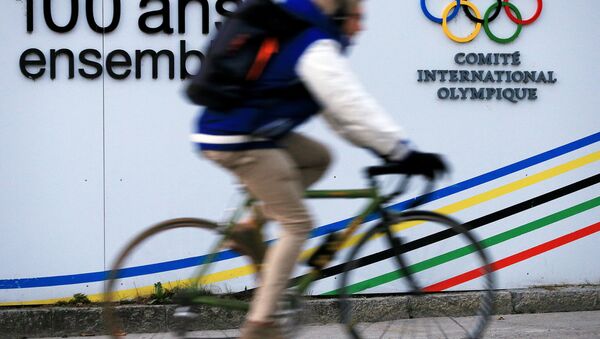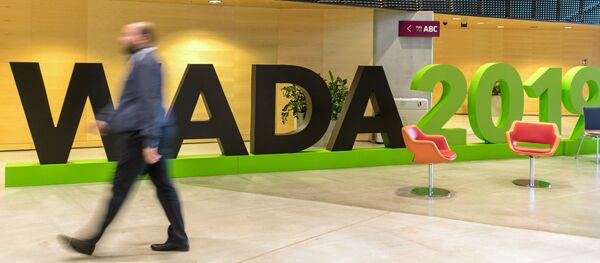The International Olympic Committee said in a statement on Tuesday that it favours the decision made by the World-Anti Doping Agency to allow 'clean' Russian athletes to participate in international competitions.
Addressing the issue of the alleged manipulation of anti-doping data at a Moscow laboratory, the Committee said that the involvement of the Russian Olympic Committee and its staff in data tampering has not been proven.
The IOC said they requested the Russian authorities to hand raw laboratory samples to WADA, adding that the latter should provide information about the data manipulations to the Council of Europe and UNESCO.
The international organisation added that it will back the toughest sanctions against everyone involved in meddling with the data from the Moscow laboratory.
"The IOC condemns in the strongest terms the actions of those responsible for the manipulation of the Moscow Laboratory data before it was transferred to the World Anti-Doping Agency (WADA) in January 2019. This flagrant manipulation is an attack on the credibility of the sport itself and is an insult to the sporting movement worldwide," it said.
Meanwhile, AFP reported citing an unnamed source that the Euro 2020 football tournament is not included in WADA's ban on Russia's right to host major sporting events.
On Monday, WADA's Compliance Committee issued a recommendation barring Russia from applying to be a host of international competitions for four years. The recommendation also prohibited the use of the national flag by Russia's team at major events.
However, the recommendation allowed Russian athletes to participate in competitions, provided that they are not in violation of the anti-doping code.
Doping Scandal
In 2015, WADA launched compliance proceedings against the Russian Anti-Doping Agency (RUSADA) accusing the latter of a large-scale state-funded doping scheme involving thousands of athletes, coaches and sports officials. Russia denied the claims but the country's athletes were forced to compete under the Olympic flag at the 2018 Winter Olympics in South Korea.
In September 2018, the ban was lifted but RUSADA was required to offer WADA access to the database of Russian athlete records.
In September 2019 another non-compliance procedure was launched against RUSADA over suspected data manipulation. Russia was given three weeks to explain "inconsistencies" found in probes previously received from the Russian laboratories. Moscow submitted its answers to the agency in early October. After examining the data provided by Moscow, WADA said that some of the records had likely been 'altered.'



